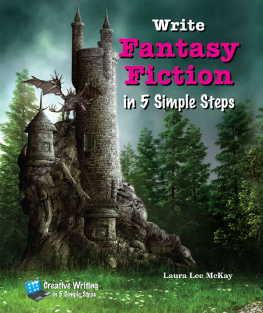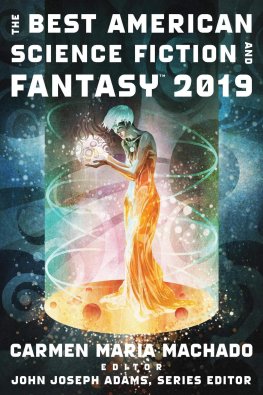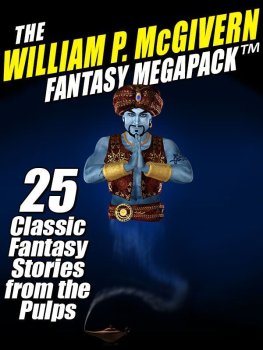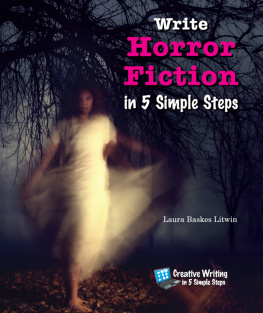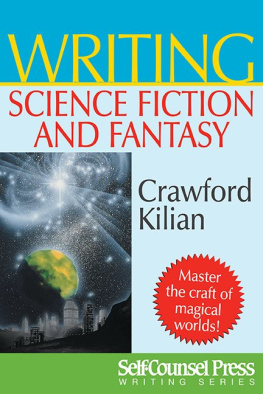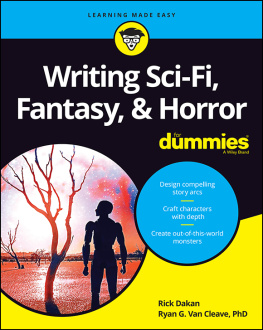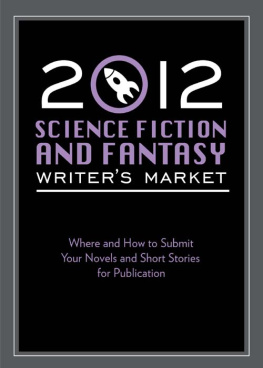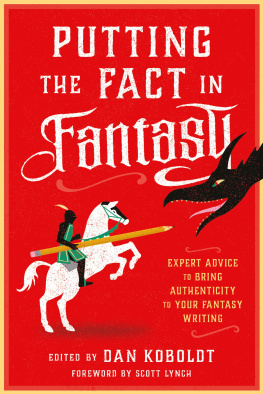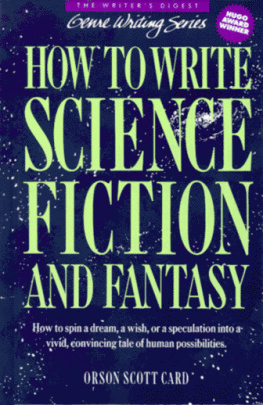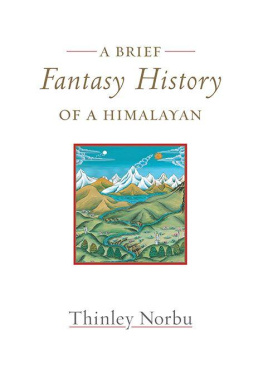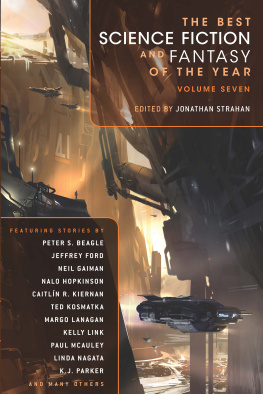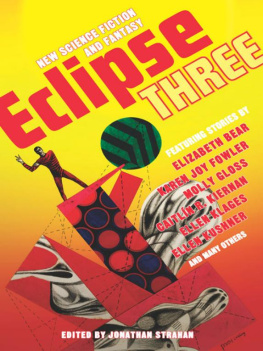You Can Write Fantasy Fiction!
Fantasy is a fun genre to read and write because you can create new worlds, people who have magical powers, and animals with remarkable qualities. If you enjoy stories about wizards and witches, time travel, talking animals, and fairies, then fantasy is the perfect way to express yourself. In Write Fantasy Fiction in 5 Simple Steps, author Laura Lee McKay shows aspiring writers how to craft an exciting fantasy.
Including a fantastic fantasy reading list, strong examples, and solid advice, Write Fantasy Fiction in 5 Simple Steps gets readers to jump into the writing world with both feet. This book is a must have for all aspiring writers!
Brianne L. Johnston, English teacher & Department Head, MCPS
About the Author
Laura Lee McKay grew up in a military family, and traveling so much as a child helped her imagination blossom. After earning a BA in Film from the University of California, Berkeley, she finally settled down in the most magical place of allHollywoodto write about movies and cultural history.

One afternoon in 1990, an aspiring writer named J. K. Rowling was stuck on a long train journey from Manchester, England, to London. She was bored until the image of a boy wizard suddenly popped into her mind. Because she didnt have a pen with her, she continued to let her mind wander, deciding what she wanted to write:
I simply sat and thought, for four (delayed train) hours, and all the details bubbled up in my brain, and this scrawny, black-haired, bespectacled boy who didnt know he was a wizard became more and more real to me.
As the years passed, Rowling wrote every day, every chance she could find, about her boy wizard until she finally finished Harry Potter and the Sorcerers Stone.
Rowlings experiences prove that you never know when and where inspiration will strike. It could happen on the morning bus ride to school, while listening to a song on an iPod, or in a dream you had while taking an afternoon nap. If you work hard like Rowling did, you can end up with a fantastic piece of writing.
Rowlings Harry Potter series is an excellent example of the fantasy genre. Fantasy is a fun genre to read and write because you can create new worlds, people who have magical powers, and animals with unusual qualities. If you enjoy stories about wizards and witches, time travel, talking animals, fairies, and trolls, then fantasy is the perfect way to express yourself. Your characterswhether they are the protagonist, villain, or supporting characterscan be as outrageous or as lifelike as you want, as long as they are believable within the context of your story. Anything you can imagine, from making friends with a dragon to moving through parallel universes, can become real to your readers if you write effectively.
Fantasy is important because it lets us imagine ourselves in all kinds of difficult, often dangerous, situations. We are then inspired to use creative ways to overcome those challenges. Fantasy is also a way to explore problems that everyone goes through in real life. Percy Jackson, in the Percy Jackson and the Olympians series, is like any other teenager who has trouble relating to his dad. In Percys case, his father happens to be the Greek god of the sea, Poseidon. Fantasy can also be an interesting way to turn negatives into positives. Again using Percy as an example, he and the other demigod children sometimes have ADHD and dyslexia, which can hurt them in their ordinary lives. It helps them when they are battling monsters, though, because they think differently than regular mortals. Fantasy helps us look at lots of things differently. One of the things we learn is that different can be good.
Writing can be scary, but basically, it means making choices and exploring options. For example, if you choose to have a character who is an orphan, he or she will have different feelings about family than another character who comes from a large family. Harry and Ron Weasley, from the Harry Potter series, are good examples. Think about how their family situations influence their behavior, and youll see what an important choice that one thing can be. This book discusses some of the choices you need to make when writing a fantasy short story or novel, or even a series, and how those choices determine the course of your fiction. Its a lot easier than you might think if you break it down into steps. Just focus on one thing at a time, and youll be led to your next choice. Before you know it, youll have a completed work of fantasy fiction to show off to your friends and family.

The first step is to decide what you want to write about. Are you interested in creating another land, for example, like Oz? Or do you want to set your story in the real world but have it be about unusual people? An example is Harry Potter, who lives in an ordinary English suburb but attends a school for wizards. The sorts of things you take an interest in during your everyday life can inspire you. If you really like animals, perhaps you could write about a talking animal that helps humans defeat an evil invader. Or if you are interested in history, you could choose to set your story in a time period that intrigues you, such as Colonial America, and have your protagonist travel back in time.
You can even create a protagonist that isnt a living being, such as a robot or a wooden puppet shaped like a little boy. Do you enjoy fairy tales? Try to tell a fairy tale in an offbeat way that hasnt been seen before. Using your other interests in your writing will help you complete your project and create something that will truly interest your readers. Dont pick something only because you think it will sell well. If your work doesnt hold your interest, it wont hold your readers interest either.
Fantasy does not have to be about magical animals or countries populated by munchkins, however. It can, and often does, deal with very real subjects, but from an unusual perspective. For example, Markus Zusaks The Book Thief is set in Germany during World War II, and the protagonist is a young girl growing up amid the horrors of the Holocaust. What makes the book fantasy is the narrator, Death, who can describe things in ways that ordinary people cant.
Along with your interests, you will need to use your own experiences to help you. Rowling relates that after her mother died, her grief enabled her to write more realistically about what Harry was feeling, and that his feelings about his parents had become much deeper, much more real.
One of the great things about fantasy is that you get to make up your own rules. There dont have to be the usual limits of time, space, cause and effect, or even gravity. As long as you are consistent and make it believable to the reader, your imagination is your only limit. Consistency is a key element of effective fantasy. Its a good idea to begin thinking now about the rules governing your story so you dont violate them. For example, if youve decided that cats can talk but not dogs, dont have Rover speaking up in the middle of the story. That might seem like a silly example, but do examine all angles of the choices you make as you go through the steps in this book. Whatever your choices are, youll have to make sure that your characters look, act, talk, dress, and think according to the rules you create. Again, there are many things to consider, but if you make your choices with conviction and stick to them with consistency throughout your writing, youll create something really fun for your readers.

